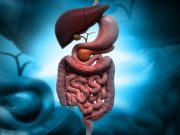Tag: Gastrointestinal Problems
Acute Gastroenteritis Outbreaks Common in U.S. Schools, Child Care
Most reported etiologies were norovirus and Shigella spp.; most outbreaks spread by person-to-person contact
Diverticulitis Case Severity Increased Early in Pandemic
Patients were sicker upon presentation, had longer surgeries and more complications
Early Aggressive Fluid Resuscitation Not Better for Pancreatitis
Incidence of fluid overload higher, with no improvement in clinical outcomes compared with moderate fluid resuscitation
Fecal Transplant Treatments Could Transmit Monkeypox, FDA Warns
Monkeypox virus DNA has been found in rectal swabs and stool samples from infected people
CDC IDs Two Outbreaks of GI Illness Linked to Splash Pad Use
Outbreaks of shigellosis and norovirus infection were associated with getting splash pad water in the mouth
Guideline Addresses Anorectal Abscess; Anal, Rectovaginal Fistulas
Clinical guidelines updated for management of anorectal abscess, fistula-in-ano, and rectovaginal fistula
More Hospitalizations, Illnesses Reported From Daily Harvest Crumbles
Company said last week that it is doing comprehensive testing to rule out potential causes
Many Very Ill After Eating Daily Harvest Lentil Crumbles
The FDA is investigating in conjunction with the U.S. Centers for Disease Control and Prevention
DDW: ‘Alarming’ Rise in Esophageal Cancer, Barrett Esophagus Seen in Middle-Age
Number of endoscopies performed not increasing, despite increased prevalence













